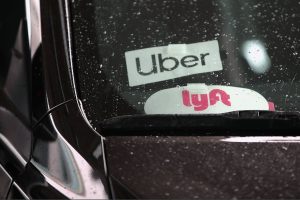 In People of the State of California v. Uber Technologies, Inc and Lyft, Inc. we continue to explore the boundaries between what is an employee verses an independent contractor. With the California Supreme Court ruling in Dynamex Operations West v. Superior Court (Lee) (April, 2018) and, later, the passage of AB5, California joined the majority of states that have adopted the “ABC” standard as follows:
In People of the State of California v. Uber Technologies, Inc and Lyft, Inc. we continue to explore the boundaries between what is an employee verses an independent contractor. With the California Supreme Court ruling in Dynamex Operations West v. Superior Court (Lee) (April, 2018) and, later, the passage of AB5, California joined the majority of states that have adopted the “ABC” standard as follows:
… a person providing labor or services for remuneration shall be considered an employee rather than an independent contractor unless the hiring entity demonstrates that all of the following conditions are satisfied:
(A) The person is free from the control and direction of the hiring entity in connection with the performance of the work, both under the contract for the performance of the work and in fact.
(B) The person performs work that is outside the usual course of the hiring entity’s business.
(C) The person is customarily engaged in an independently established trade, occupation, or business of the same nature as that involved in the work performed.
Here, Uber and Lyft, continue to argue that their drivers want to be “independent” and not employees. While their business model is clearly the transportation of people for compensation, what does Uber and Lyft really provide the drivers other than a software application? What business would not like to shift the entire cost of providing their service onto the employees? After all, Uber and Lyft drivers provide the vehicle, the fuel, the time, the maintenance, et cetera. Of course, if they are considered “employees” which the San Francisco Court ruled they are, then Uber and Lyft would have to provide the typical protections afforded employees including minimum wage, overtime, worker’s compensation and reimbursable expenses. Obviously, desperate people in the current COVID-19 economy may want to be “independent” if that means they have some type of income. It’s a rub that will continue to cause friction for the foreseeable future. This debate is something to consider the next time you pull up the app and marvel how cheap your Uber ride is.
